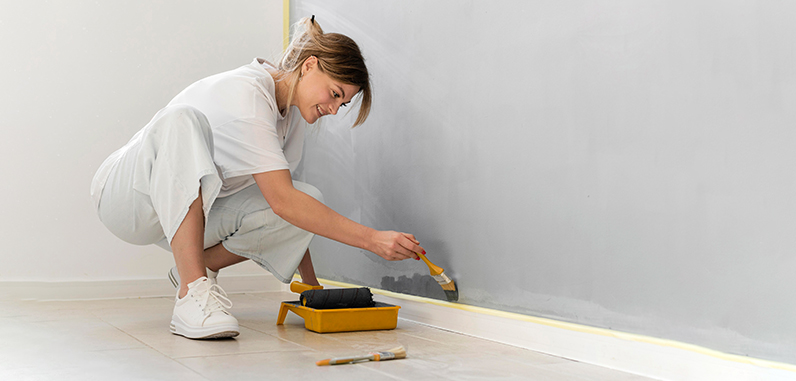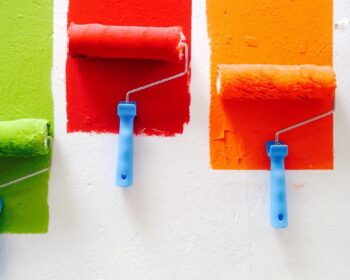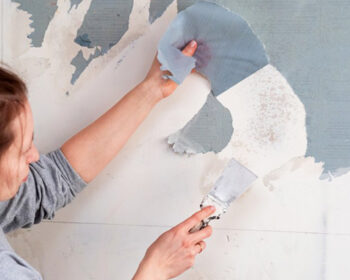
7 Incredible Ways to Extend the Life of Your Wall Paint
If you intend to paint the interior or exterior walls painting of your home, you may be unaware of how to properly prepare your walls to ensure the paint job lasts a long time! Could it be you? No need for concern!
It is essential to apply the right coat of paint that endures the test of time, even if the longevity of your painting depends on a number of factors.
The following seven best strategies for prolonging the life of your wall paint will show you how to:
- Extend the life of your painting.
- Leave you with clean, well-kept walls that will last for years.
- Minimize the need for additional maintenance
- Check to see whether your painting is masking any underlying problems.
Let’s begin!
Remove old paint to provide a long-lasting foundation.
For your new paint job to last as long as possible, it is crucial to remove any existing paint from the walls before painting. In the event that old paint flecks are left on the surface, the new paint may flake, peel, or produce an uneven finish. To guarantee that the new layer of paint can cure evenly, you may simply smooth off any rough places on the surface with sandpaper.
Fix any surface defects.
You can discover minor dents and cracks in the walls after removing the previous paint. If you want to get a flawless paint finish, it’s crucial to start with a smooth surface. Small holes can be filled in with fresh filler, or you can pay an expert to do it for you. Before painting, a skilled painter will always repair any damaged walls to guarantee that your walls will look lovely both now and for many years to come. Prior to painting, damaged wall portions must be repaired because they can make a freshly painted wall appear dated and disorganised.
Thoroughly clean the surface before painting
You should carefully clean your walls before painting them since any dirt on them can prevent the paint from adhering to the surface properly. To start, use a damp cloth and detergent to clean the walls of dirt, filth, insects, and stains. After that, wipe off any extra debris with a damp towel. Painting a house’s exterior might be more challenging because rust, grime, and mould can accumulate over time. Most of the filth and grime can typically be removed using a high-pressure cleaner, but for particularly dirty walls, bleach and hot water may be necessary. Your home’s exterior is the first thing your visitors and neighbours see about you so it is important to pay special attention to the outside of your home.
Choosing a high-quality paint will save you time and money
Researching the best paint kind for the surface you wish to paint on is essential. For various uses, there are numerous distinct goods available. It is strongly advised to spend money on premium paints and undercoats, making sure they are produced by a recognised company. Choosing a renowned brand will protect your walls, reduce fading or decoloring, increase durability, need less care (such as easier stain and fingerprint removal), and even guard against mould and unpleasant odours. Choosing a reputable brand can ease your mind and guarantee that your paint will last a long period.
Applying paint correctly will make your paint last longer
A skilled painter is aware of the significance of priming a wall before painting it. You may achieve a superb, long-lasting paint job by priming. A single application of primer and paint will last far longer than two. Additionally, primers will cover whatever additional paint that has been put to your walls, regardless of how black or vivid it may have been. The flawless paint job can only be achieved with the appropriate brush technique. The colours will be faint and uneven once the paint has dried if the coat of paint is applied too thinly. A coat of paint that is applied too thickly will likely break and become lumpy.
Although painting a wall may appear straightforward, using the proper strokes is crucial for a smooth, uniform finish. First use a brush to paint the wall, and then immediately use a roller. This enables the paint applied with a brush and a roller to blend seamlessly.
Hot tip: To prevent your paint and tools from drying out, cover your paint bucket with a wet cloth whenever you transition between brushing and rolling.
Keep your leftover paint for later
Keep your extra paint in a safe place so you can touch up between projects. On occasion, cleaning and removing flaws may not be sufficient, and you may need to repaint a few tiny areas.
Hot tip: Make sure to store any remaining paint at room temperature and in an airtight container for the best effects.
Hiring a professional painter to help
Hiring a profesional Melbourne house painter is the greatest approach to ensure that the paint job is of good quality. Our skilled painters have the necessary tools, years of experience, and premium paints to make your walls truly stand out. DIY projects can occasionally be ambitious and turn into more work than expected, leaving you overwhelmed or confused.





